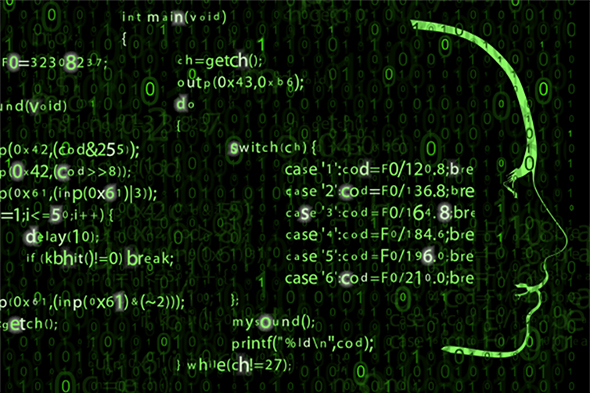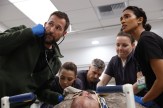Is that a turnip or a bomb?

Computer science professor Mitchell Wand has a surefire way of introducing his research in social settings.
“When people come up to me at a cocktail party and ask about my research, I tell them this: Somewhere down in the bowels of the Pentagon is this guy whose job is to write a computer program. The program will take the video feed from a drone over in Afghanistan or Iraq, or wherever drones fly these days, and figure out if that guy kneeling on the side of the road is planting turnips or planting a bomb.”
Wand’s mission is to make the job of that sun-deprived programmer easier, faster, and more accurate.
He—along with computer science professor Olin Shivers, other Northeastern researchers, and collaborators at BAE Systems and Tufts University—is participating in a four-year project called Probabilistic Programming for Advancing Machine Learning, or PPAML. The project is supported by the Defense Advanced Research Projects Agency, or DARPA, a branch of the Department of Defense.
Wand and Shivers serve as principal investigators for the Northeastern team. They have two aims:
First they are developing a specialized programming language, called Gamble, that can help decipher those video images. That suspected terrorist, for example, may, in fact, be a farmer planting root vegetables for his livelihood.
Next, they are building mathematical theories for Gamble that can be used to develop tools for translating any number of new programming languages into ones that computers can understand and use to execute tasks quickly.
Aiding them in their quest is an earlier development at Northeastern: the programming language Racket, which was created by Matthias Felleisen, Northeastern Trustee Professor, and his colleagues. Racket simplifies the process of inventing programming languages by allowing programmers to use vocabulary drawn from the subject at hand— for example, a program designed to solve engineering problems would use the actual mathematical language of engineering.
“Our advantage in developing Gamble at Northeastern is that we have really good technology for inventing new languages—and implementing them quickly,” says Wand.







